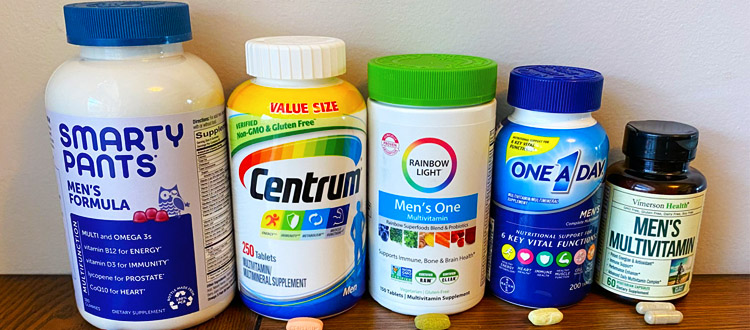Multivitamin supplements are designed to provide the body with all the essential nutrients it needs to function properly.
By including a wide range of vitamins and minerals in their formulation, multivitamin supplements ensure that the body gets everything it needs to stay healthy.
Most people get all the nutrients they need from their diet, but some groups of people may benefit from taking multivitamin supplements. This includes people with poor diets, those who are unable to absorb nutrients properly, and those who have increased nutrient needs.
Multivitamin supplements can have a range of different health benefits. For example, they can help to reduce the risk of developing certain diseases, such as heart disease, stroke, and cancer. They can also help to keep the immune system strong and improve cognitive function.
In addition to their health benefits, multivitamin supplements can also help to improve energy levels and reduce stress levels. This is because they provide the body with a range of nutrients that are essential for proper metabolism and hormone balance.
If you are considering taking multivitamin supplements, it is important to speak to your doctor first. This is because some vitamins and minerals can interact with certain medications, and the dosages in multivitamin supplements may not be suitable for everyone.
Your doctor will be able to advise you on whether multivitamin supplements are right for you and, if so, which ones to take.
How multivitamins differ for men and women.
There are a few key ways in which multivitamin supplements for men and women differ. For one, men generally need more vitamins and minerals than women do due to their higher levels of activity and muscle mass.
Additionally, different hormones in men and women require different amounts of specific vitamins and minerals. For example, estrogen can deplete magnesium stored in the body, while testosterone can deplete zinc. As a result, it’s important for women to take multivitamins that are formulated with their unique needs in mind.
The best way to ensure you’re getting all the nutrients you need is to eat a varied and balanced diet. However, this isn’t always possible, which is where multivitamins come in. They can help to top up your nutrient levels if you’re not getting enough from your diet.
Multivitamins are available in a variety of formulations, so it’s important to choose one that’s right for you. For example, if you have a specific health condition, such as iron deficiency anaemia, you may need to take a multivitamin that’s tailored to your needs
General tips:
- Eat a balanced diet
- Exercise regularly
- Get enough sleep
- Manage stress levels
- Don't smoke
- Drink plenty of water
Foods to eat that help you get the nutrients you need.
There are a lot of different types of foods out there that can help you get the nutrients you need. Some of them may even surprise you. Here are just a few:
- 1. Fruits and vegetables – Fruits and vegetables are packed with vitamins, minerals, antioxidants, and fiber. They’re an essential part of any healthy diet.
- 2. Whole grains Whole grains are a great source of complex carbohydrates, vitamins, minerals, and fiber. They can help you feel fuller longer and regulate your blood sugar levels.
- 3. Lean proteins Lean proteins are an excellent source of important nutrients like iron, zinc, and B vitamins. They can help you maintain a healthy weight, build muscle, and reduce your risk of chronic diseases.
- 4. Dairy Dairy products are a good source of calcium, vitamin D, and protein. They can help you build strong bones, muscles, and teeth.
- 5. Healthy fats Healthy fats are an important part of a balanced diet. They can help you absorb fat-soluble vitamins, support cell growth, and reduce inflammation.
You can get all of these nutrients from a variety of different foods, so it’s important to mix up your diet and include a variety of different foods. This will help you get the most benefit from the nutrients in food and avoid deficiencies.

How do you know if you need multivitamin supplements?
There are a few key things to look for that can indicate whether you might need to start taking a multivitamin supplement. First, consider your diet. If you eat a lot of processed foods or foods that are low in nutrients, you may be at risk for vitamin deficiencies. Additionally, if you have any chronic health conditions that affect your ability to absorb nutrients from food, you may also need a supplement.
Some common signs of vitamin deficiencies include fatigue, weakness, hair loss, and even depression. If you are experiencing any of these symptoms, it's worth talking to your doctor about whether a multivitamin supplement might be right for you. Additionally, certain blood tests can check for specific vitamin deficiencies and help guide your decision about whether to take a supplement.
In general, multivitamin supplements are considered safe for most people. However, it's always best to talk to your doctor before starting any new supplement, just to be sure it's the right choice for you.
There are many benefits to being healthy and taking vitamins. Vitamins help your body to function properly and can improve your overall health. They can also help to prevent certain diseases and conditions. Taking vitamins regularly can help you to feel your best and stay healthy.










